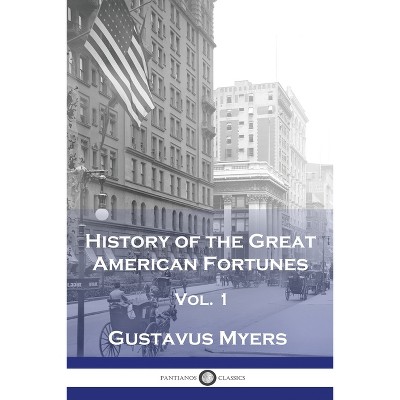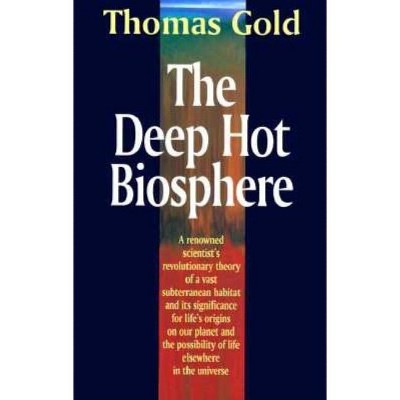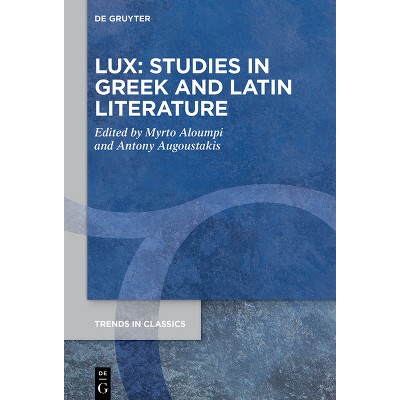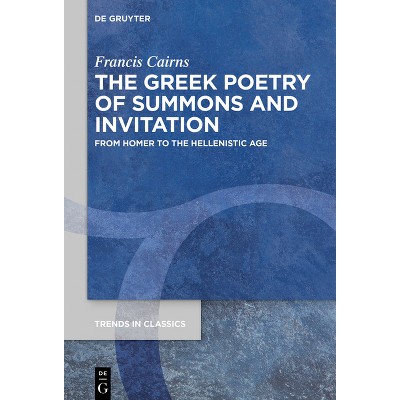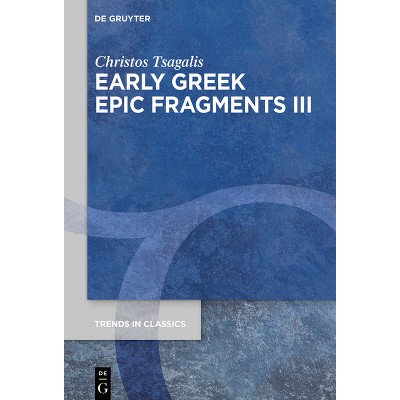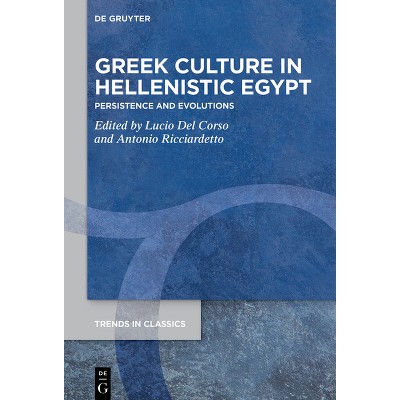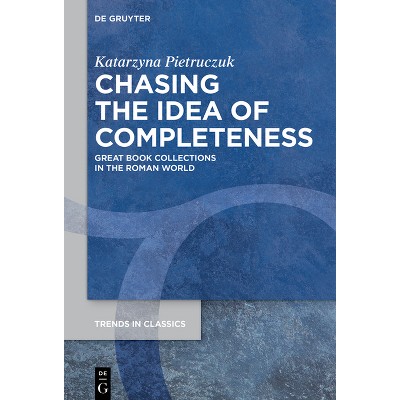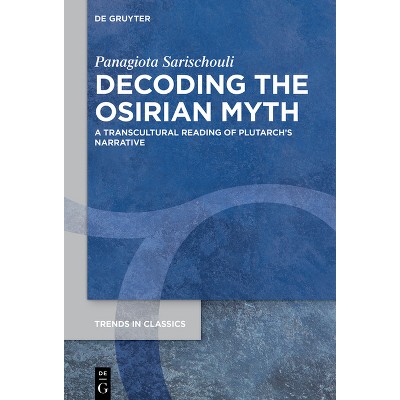Sponsored

Generic Interplays in Imperial Greek Literature - (Trends in Classics - Supplementary Volumes) by Orestis Karavas & Vasileios Liotsakis (Hardcover)
Pre-order
Sponsored
About this item
Highlights
- Greek literature of the Roman Empire has long ago ceased to be treated as the fruit of pure imitation and unimaginative reproduction of literary models from the Classical age.
- About the Author: Orestis Karavas and Vasileios Liotsakis, University of the Peloponnese, Kalamata, Greece.
- 340 Pages
- History, Ancient
- Series Name: Trends in Classics - Supplementary Volumes
Description
Book Synopsis
Greek literature of the Roman Empire has long ago ceased to be treated as the fruit of pure imitation and unimaginative reproduction of literary models from the Classical age. Drawing from the conceptual and methodological agendas of modern fields such as narratology, cognitive studies, and linguistics, classicists have approached the authors of the Second Sophistic with a fresh eye and treat them as anything but lacking originality in the ways they chose themes and developed their compositional styles. Nevertheless, a great amount of the Imperial literature still remains significantly unexplored in terms of the ways literary genres evolved at those times and interacted with each other. Although rhetoric has left its mark on the literary production of this era, on the other hand, an abundance of other genres call for further comparative research. In this line of thought, the papers of this volume focus on how the literary goal-settings of Imperial Greek authors shaped the generic trends and physiognomy of current literary production, and penetrate more into the various co-existing and, very frequently, interactive modes of writing, in order to shed new light on the generic fusions operated in the Imperial Era on a literary level.
About the Author
Orestis Karavas and Vasileios Liotsakis, University of the Peloponnese, Kalamata, Greece.
Shipping details
Return details
Frequently bought together


Trending Non-Fiction







